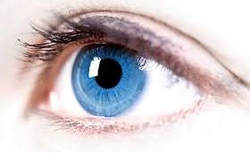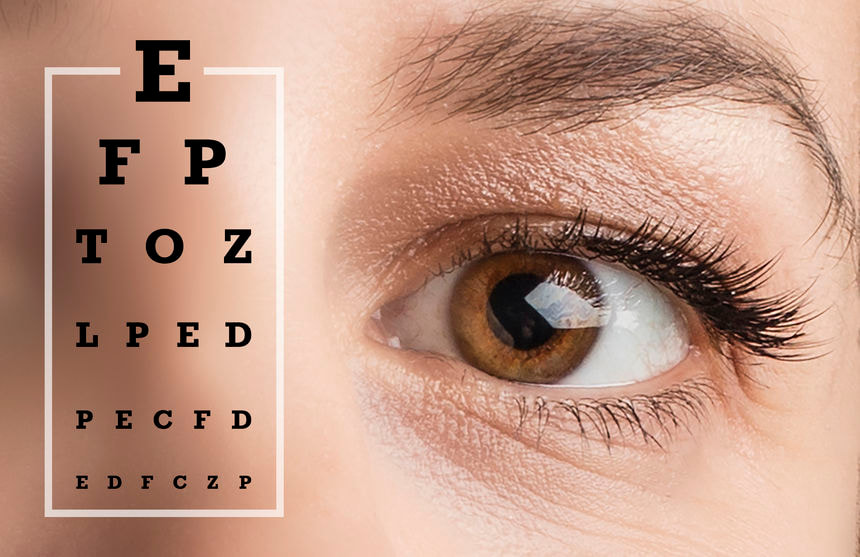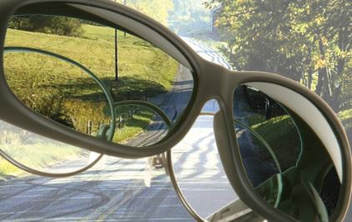What is Glaucoma?You may have heard of Glaucoma but may not necessarily know what it is or why some people get it. In this post, we will tell you more about Glaucoma, the symptoms and treatments available. So what exactly is Glaucoma? The Optic nerve is a nerve that connects our eyes to the brain. It’s possible that this nerve can get damaged and when it does, it can cause sight loss. Glaucoma is the name for eye condition that causes sight loss and is often linked to a high eye pressure. Types of Glaucoma Primary Open Angle Glaucoma (POAG).
Secondary Glaucoma.
Did you know? Who is at risk from Glaucoma?
Anyone can get Glaucoma and if detected early enough, damage from Glaucoma can be prevented Age is a factor in diagnosing Glaucoma. It is most common in adults over the age of 70. Research also shows that Ethnicity can play a part in who may contract certain types of Glaucoma. Spotting the signs of Glaucoma Usually Glaucoma occurs slowly and unfortunately the symptoms aren’t always noticeable until some damage to the eyes has occurred. Having said that, some symptoms are noticeable to patients for example someone may experience blurred vision or eye pain. Other symptoms can include:
We always suggest going to see an Optician or Optometrist regularly for your routine appointments as Glaucoma is usually diagnosed following an eye test. When having an eye test, your Optician/Optometrist may well suggest having an eye pressure test. This is where they examine the front part of the eye. During this test, they will see whether there’s any issues with fluid drainage. During your eye test, you will also have a visual field test to see if there’s any loss of your peripheral vision If the professional performing your eye test does suspect Glaucoma, then they will refer you to a specialist for further treatment and diagnosis. Treatment for Glaucoma The following treatments are available for treating Glaucoma
12 Comments
Have you noticed that you can't focus on a book or magazine like you used to? maybe the words or images are looking a little blurry or out of focus and you need to hold your book out at arms length in order to read what's on the pages? If that sounds familiar, then you may be showing symptoms of presbyopia. Although it's a complicated sounding word, there's nothing to worry about as it's a natural part of ageing. It occurs when the crystaline lens in your eyes becomes harder & this in turn means your ability to focus on near objects becomes harder for you. This usually happens in our 40's and is a gradual decline - even more reason for us to make regular appointments to see the optician! Symptoms of Presbyopia
Helping yourselfAs mentioned earlier, it's important you visit your optician. A simple eye test will let you know if your prescription has changed and appointments usually only take 30 minutes or so.
It is also important that you have the right lighting for the tasks you are doing. We have a range of LED lamps and lighting that can help. Don't go for the easy option of buying glasses that can be bought without knowing your prescription. Although these are a cheap option, it's important that you get your eyes checked out to ensure you are wearing the right prescription. We are only too aware of the damage the sun can do to our skin if we leave it unprotected. Sun burn and skin cancer are just some of the damaging effects from UV rays. However, have you ever thought about the damage UV can do to your eyes if not adequately protected? The month of May is UV awareness month and with that in mind, here at Associated Optical, we wanted to talk about UV protection and how you can help keep your eyes healthy. Invest in the bestProtecting your eyes from the glare of the sun isn't important just to stop them watering or from you squinting to see, it can also help protect your eyes from long lasting future damage. Sadly, a lot of people buy cheap sunglasses thinking that they will give us adequate protection. However, this isn't always the case. If sunglasses don't have adequate UV protection, they can trick the eye into thinking it's dark outside. Therefore, the pupil will dilate to allow more light into the eye and that can cause more UV to get into the eye than it normally would.
How your eyes may get damaged by UVEven on cloudy days, we should wear adequate eye protection but you should be more aware of protecting your eyes from damage if you...
What else can you do to protect your eyes?Sadly, our eyes can easily get neglected. In order to maintain good eye health we recommend you:
Lets face it. Sometimes some of us can be a little guilty of neglecting our eyes when it comes to self care. We may even have picked up bad habits that we aren't even aware of. The reality is, that when it comes to eye care and our sight, we need to make sure we treat our eyes as a priority and that's why in this post, we're going to discuss the mistakes that you are making when it comes to your eyes. Going out without your sunglasses - EVEN IN WINTERHow many times have you forgotten your sunnies when nipping out to the shops? It's ok you tell yourself, it's not too bright. Truth is that UV rays can cause our eyes damage that we won't notice until it's too late. UV rays can damage the macular (leading to issues such as macular degeneration), cause melanomas, cause cataracts and other vision problems. If you regularly squint in the sunlight, this can cause damage to the sight in the long term. Even in Winter, it's important to ensure you are wearing adequate sun protection for your eyes. Look for sunglasses that offer full coverage for your eyes, sunglasses that block at least 99% of UVA rays. Here at Associated Optical, we have a range of anti-glare and contrast enhancement glasses that offer protection for your eyes. REMEMBER - Even on cloudy days, it's important to wear sunglasses! Not getting your eyes tested (enough)It's so easy to neglect your eye tests. Some of us don't really remember to book our eye tests until we notice a problem (such as straining to read the writing on the tv) but it's really important to pop a reminder on your phone or in your diary. Ideally we should have our eyes tested every 18 months (sooner if you have experienced previous issues with your sight). Eye tests don't take up too much time but they really are worth the money you may spend on them. In the UK, some patients will even be able to get their eye test for free or claim back a percentage of the cost from their employers (Please look into this to see if you are eligible) Opticians are highly trained and continue their professional development on a regular basis so you know you are in safe hands. If you are nervous, your optician will work with you to ensure that you are comfortable whilst having your eyes checked. REMEMBER - After having your eye test, put a reminder in your phone or diary to set up another appointment for a date your optician recommends. Sleeping in your contact lensesIt can be easy to forget about taking your contact lenses out at night. Especially if you are tired. However, sleeping with your contact lenses in can increase risk of eye infections by between 5 & 10 times! Make sure you wash your contacts in the correct solution and store them as recommended. Never use tap water to clean your contact lenses. Whilst we're talking about contact lenses, another habit some people mention they do is showering with their contact lenses in. This can cause eye infections or in worse case scenarios - blindness. This is due to amoebas that can easily get onto your contact lenses and then transfer to your eye. If you do wear contact lenses, please ensure you change them regularly. If you are a wearer of daily contact lenses, then please replace them on a daily basis and likewise for different types of lens. You won't notice it on a day to day basis but your contact lens can easily harbour germs or dirt. Make sure you regularly clean them as recommended and replace them when recommended too. Rubbing your eyesIt's so annoying when a stray eyelash falls into the eye causing pain and discomfort. We then rub our eyes to get rid of that eye lash. Whilst this won't necessarily cause any damage, if you are the type of person who regularly rubs their eyes, this can cause problems such as keratoconus. Keratoconus is a condition where your cornea becomes thin. This can affect your vision. Sometimes this can lead to surgery. Make up mistakes!Again, germs and nasties can easily get onto our make up . When it comes to our eye shadows, eye liners, mascaras and brushes, we need to ensure we keep them clean and replace on a regular basis.
Make up brushes should be washed on a weekly basis to ensure they are kept clean. Replace your make up brushes every year. Mascara should be changed every 3 months, eye shadow every 2 years. However, if you have had an eye infection such as a stye, we would recommend you change your brushes and mascara/eye liner to prevent any cross contamination. If you would like more information relating to Glaucoma, Please CLICK HERE to learn more from The McIndoe Centre Copyright: <a href='https://www.123rf.com/profile_puhhha'>puhhha / 123RF Stock Photo</a>  Unless you have experienced them first hand or have a loved one who has experienced cataracts, the likelihood is that you don't know too much about cataracts and what they are. Let alone the treatment available for them. A cataract is clouding of the lens. Your vision can become blurred due to this cloudiness that the cataract causes at the back of your eye(s). The three B’s is a simple philosophy for maximising the sight you have by enhancing what you are want to read making items appear bolder, bigger and brighter; with the correct training from a low vision professional , selecting the right products and making simple adjustments, can make a big, bold difference to how independent you are.
Electronic magnifiers are one of many product solutions which allow you use the vision you have more effectively. With the inbuilt features of a digital magnifier you can enlarge the size of text, enhance the contrast and increase clarity allowing you to see things clearly. Fundamentally making the text you are reading appear bigger brighter and bolder. |
AuthorAssociated Optical -improving the lives of people living with sight loss for over 35 years. Archives
January 2023
Categories
All
|
Our services |
company |
Professional |
Copyright © 2015 Associated Optical. All rights reserved.






 RSS Feed
RSS Feed

